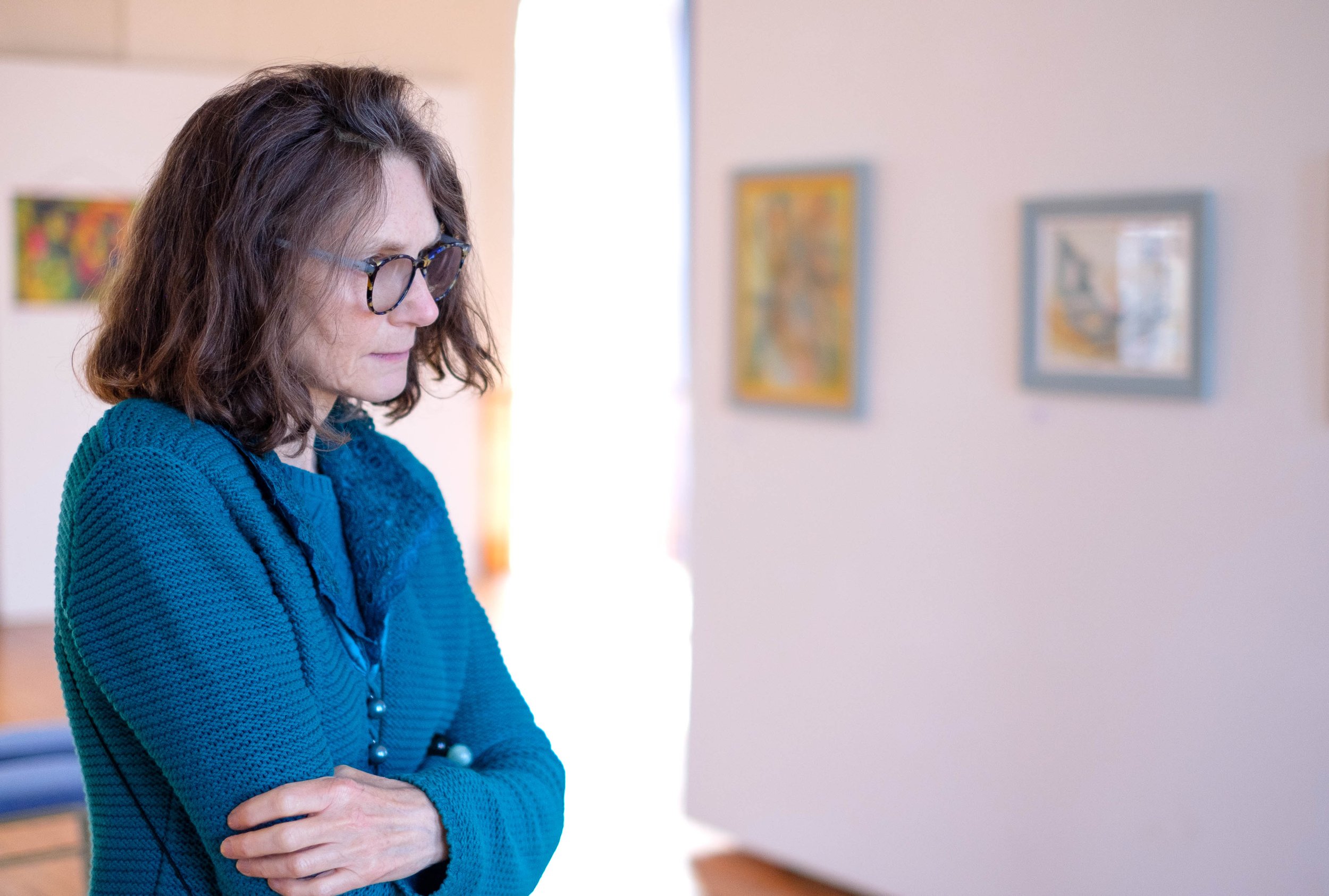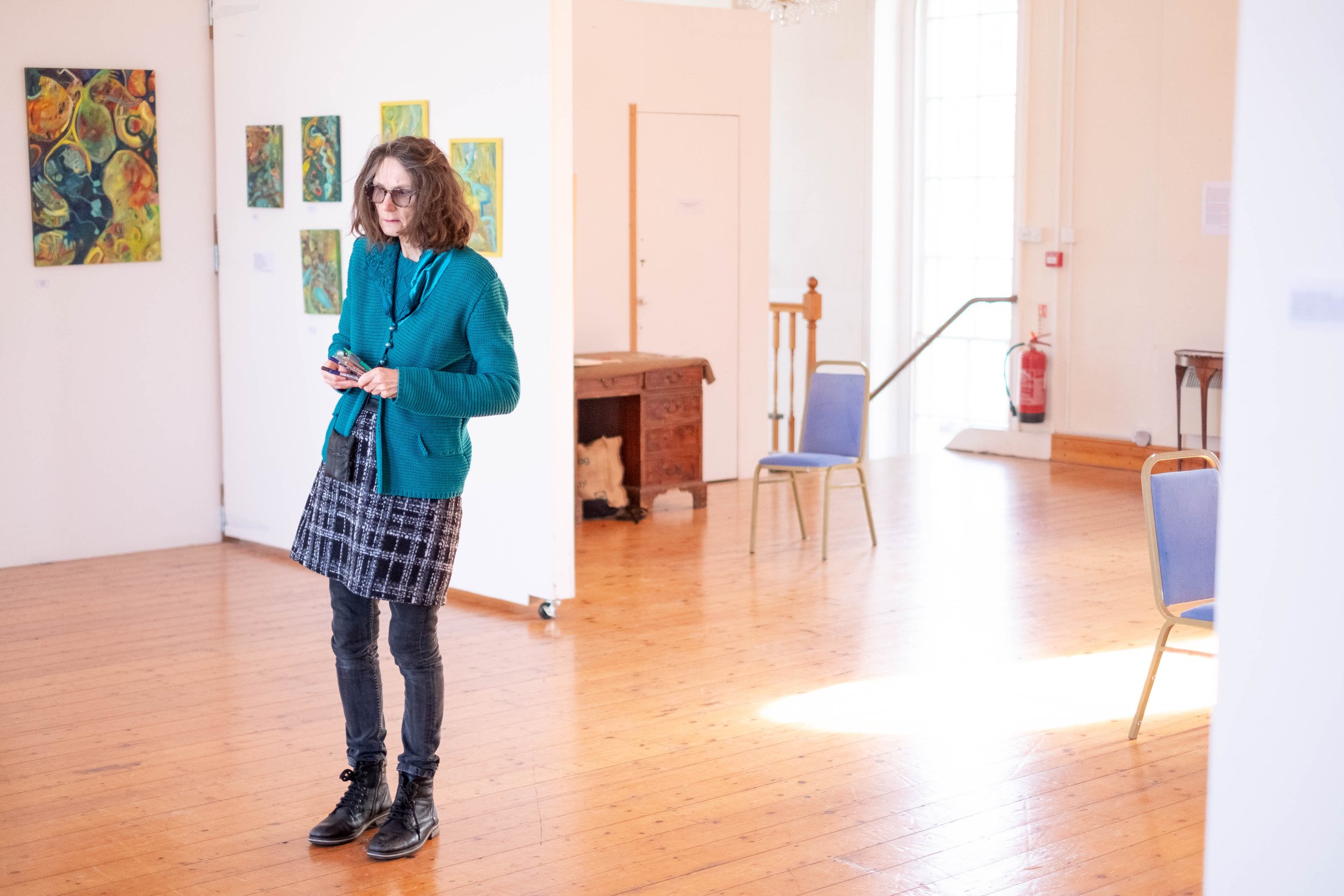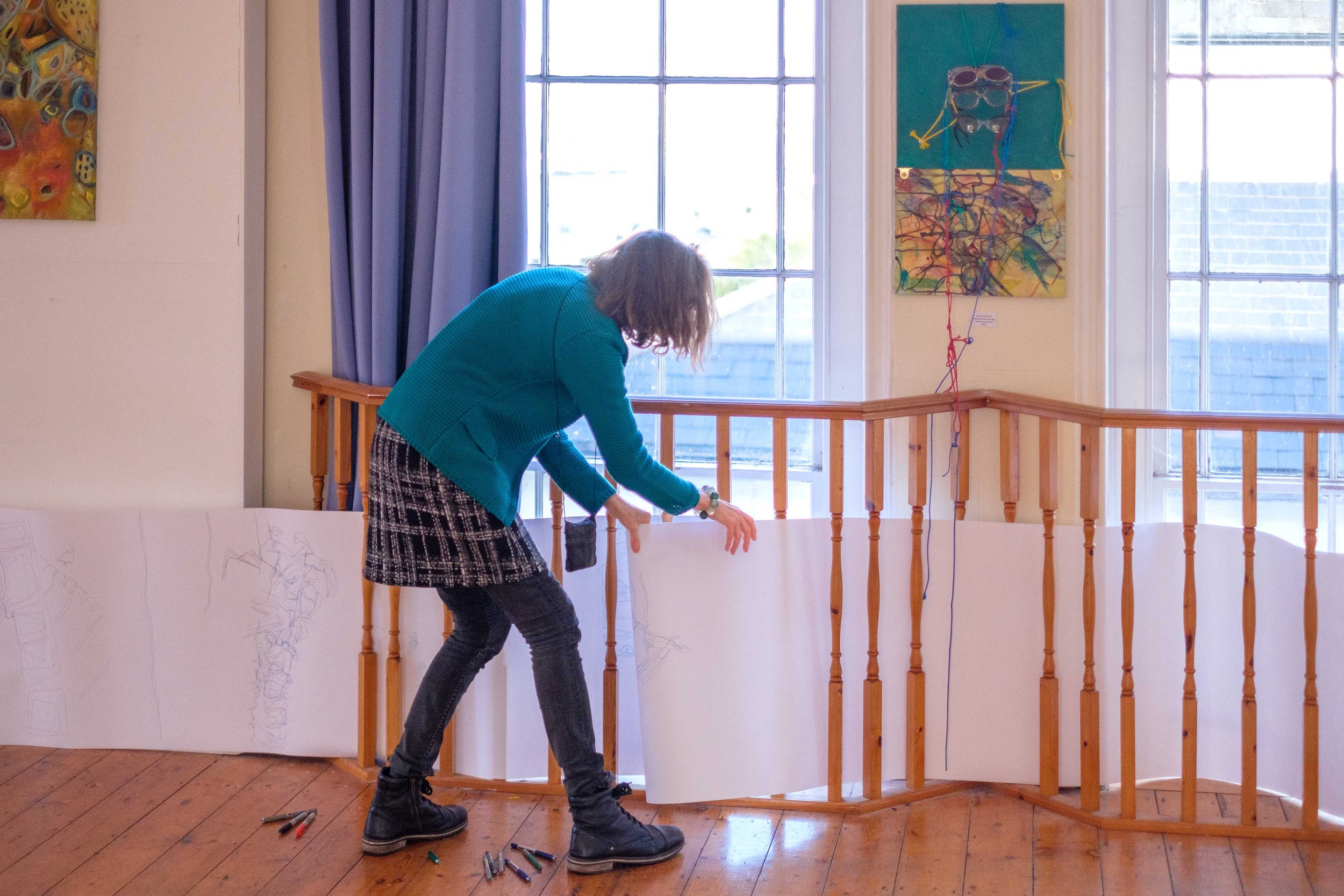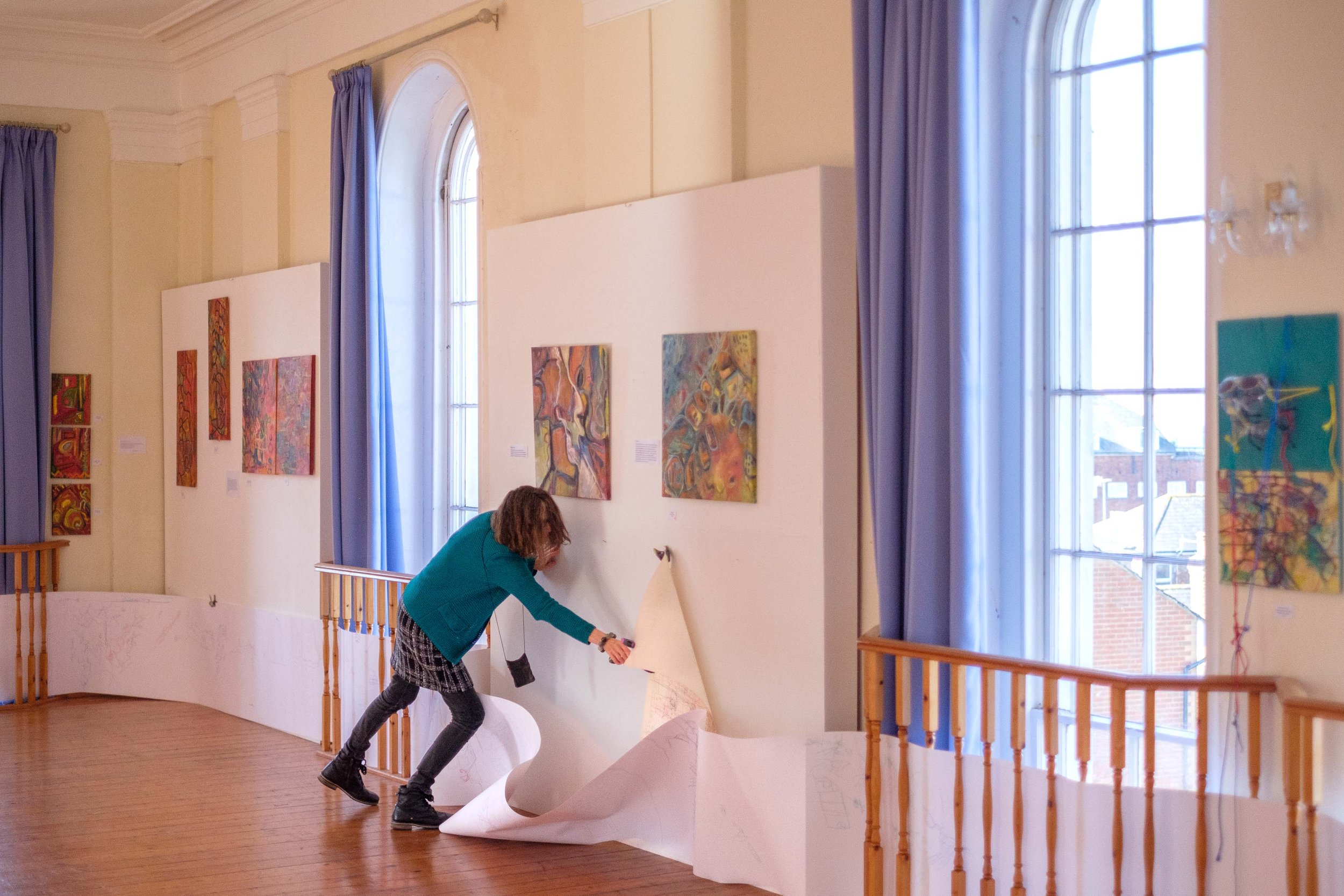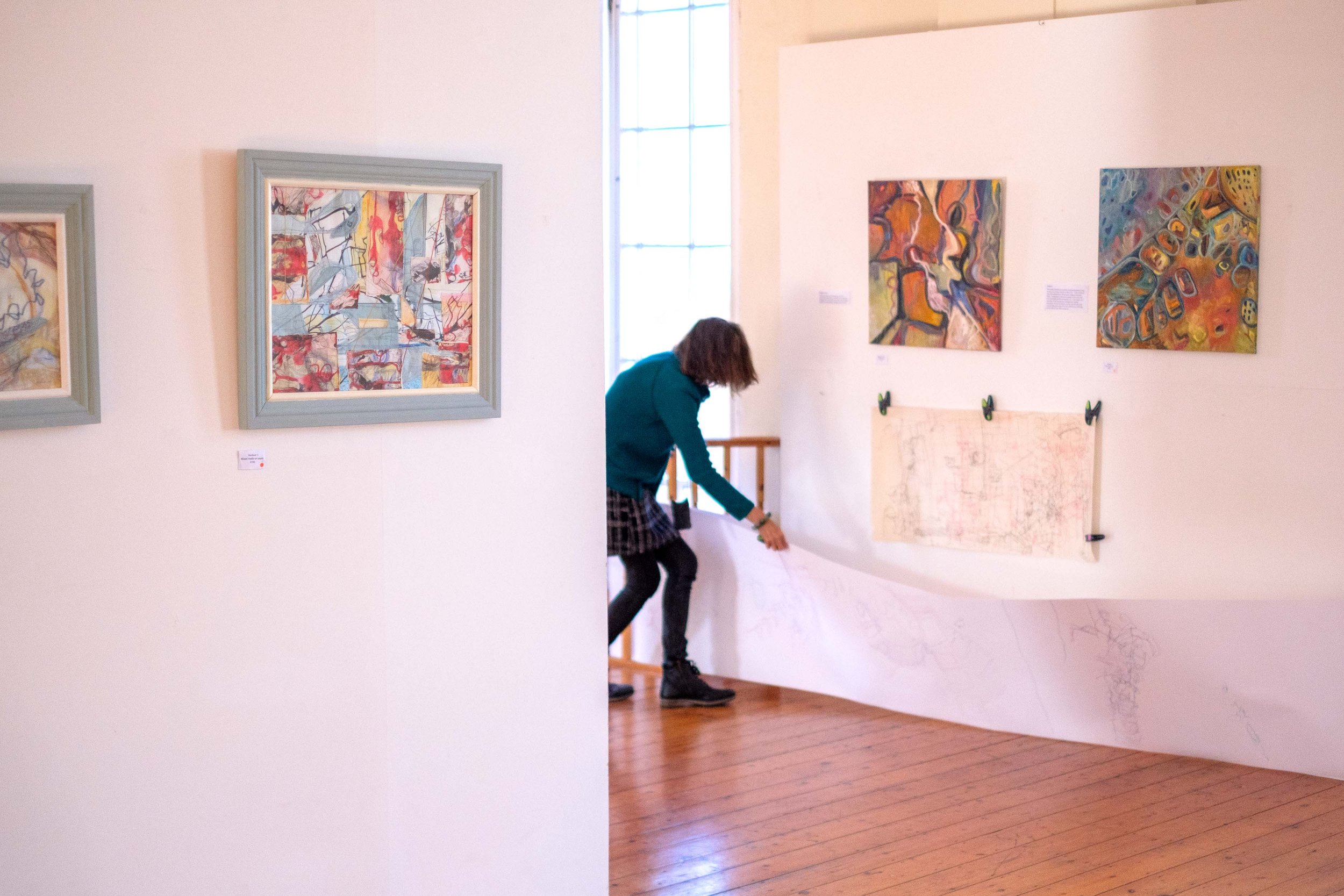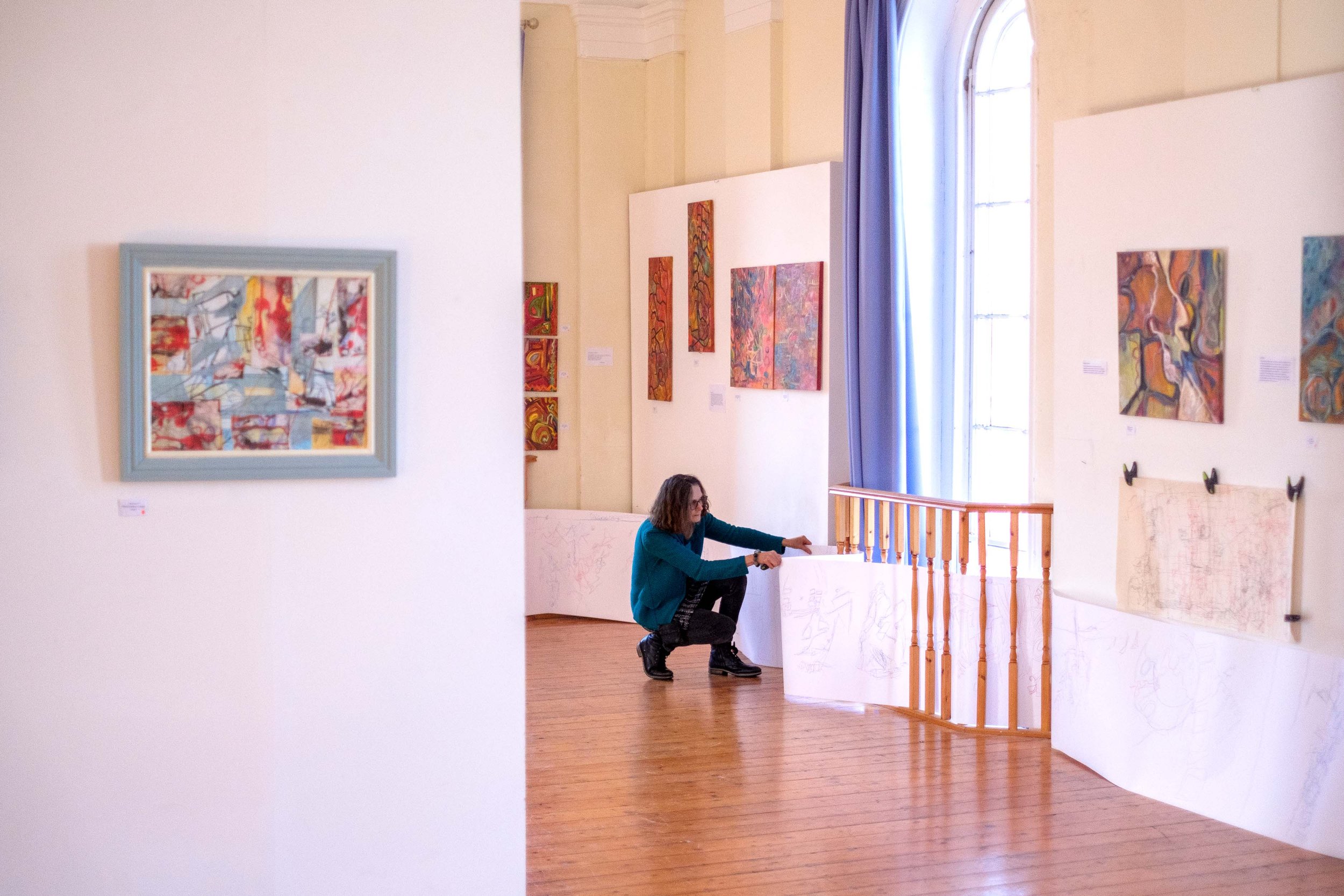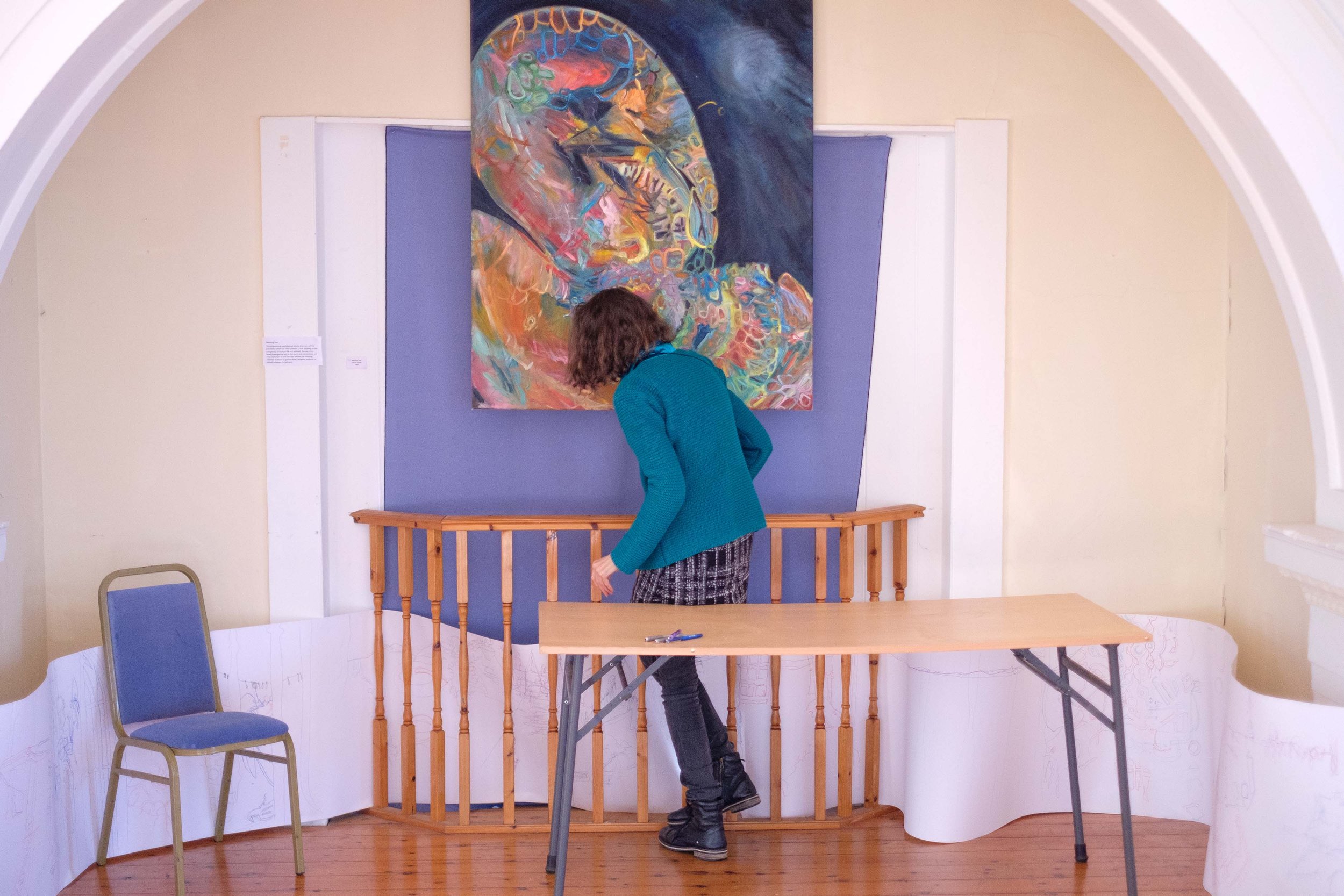Rosemary Lawrey (Painter)
Text and Photos by Vincent Dupont-Blackshaw
The Isle of Wight is also about the people who live here.
I met Rosemary Lawrey at an art market we both attended at Montage Place in Ryde and was immediately impressed by the quality of her work.
So when she talked to me about this round-the-room drawing she wanted to do during her next exhibition, I knew it would be really interesting to come and document it.
For ‘Life on the Isle of Wight’, she is sharing her journey and her favorite places on the island.
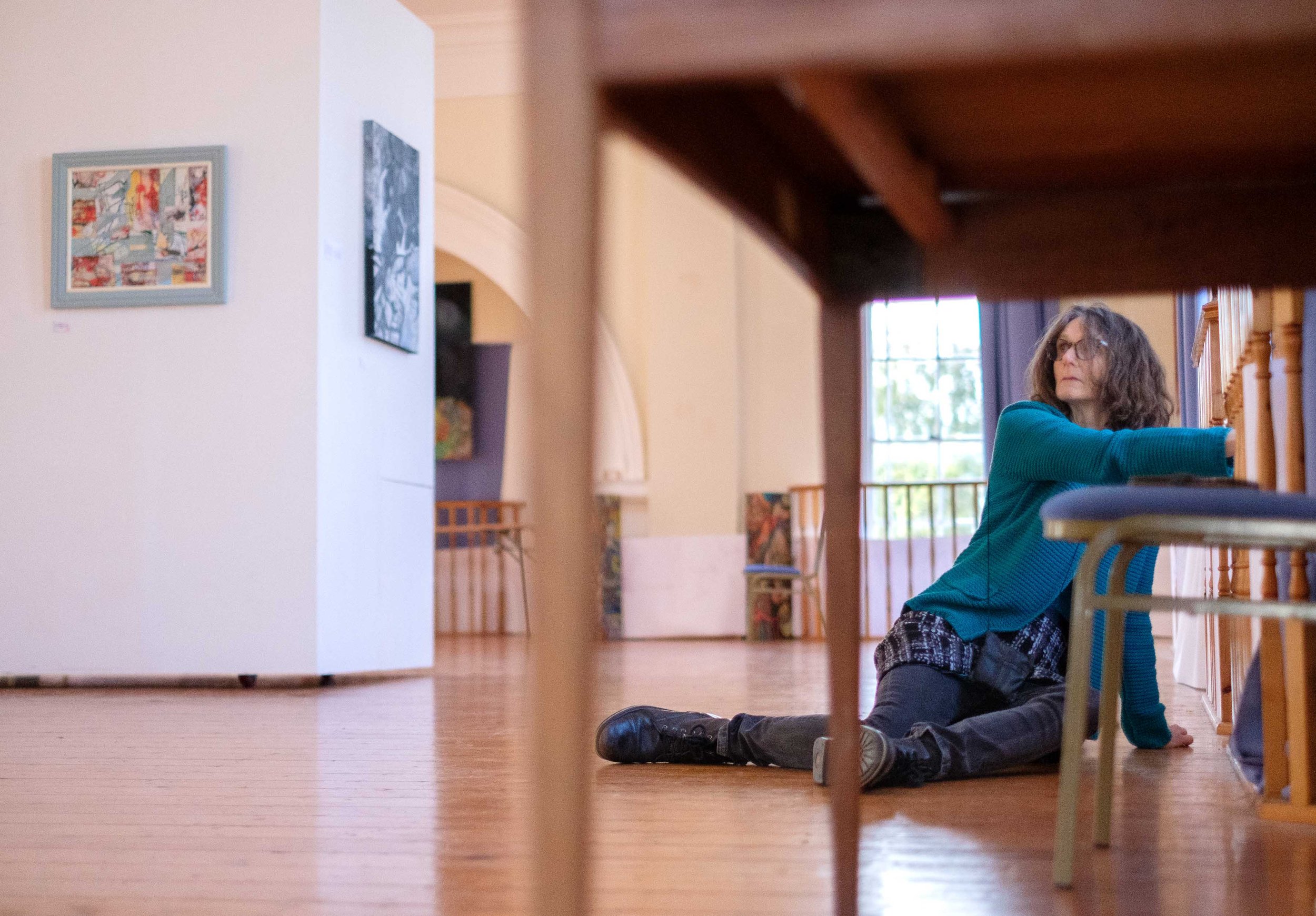
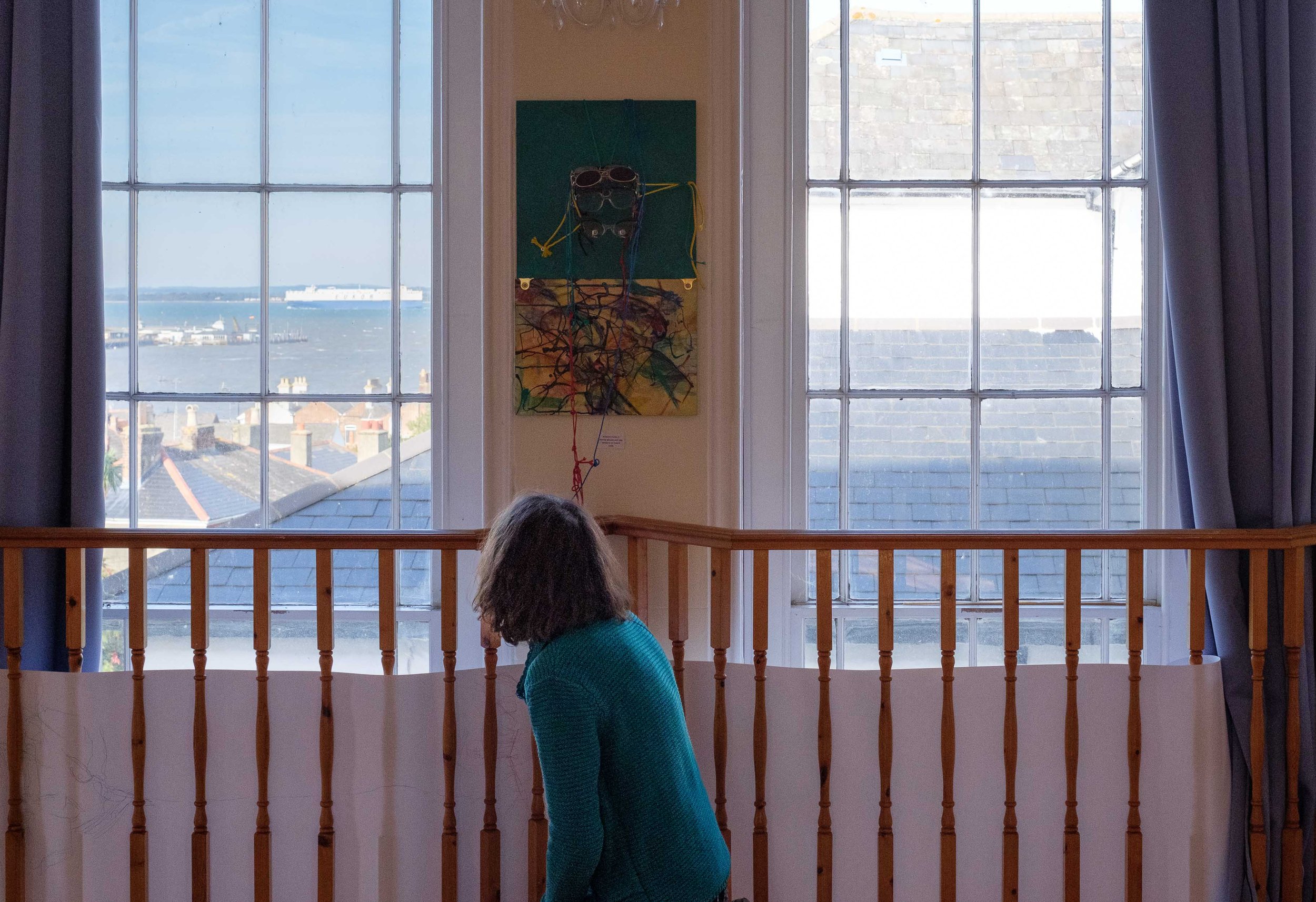
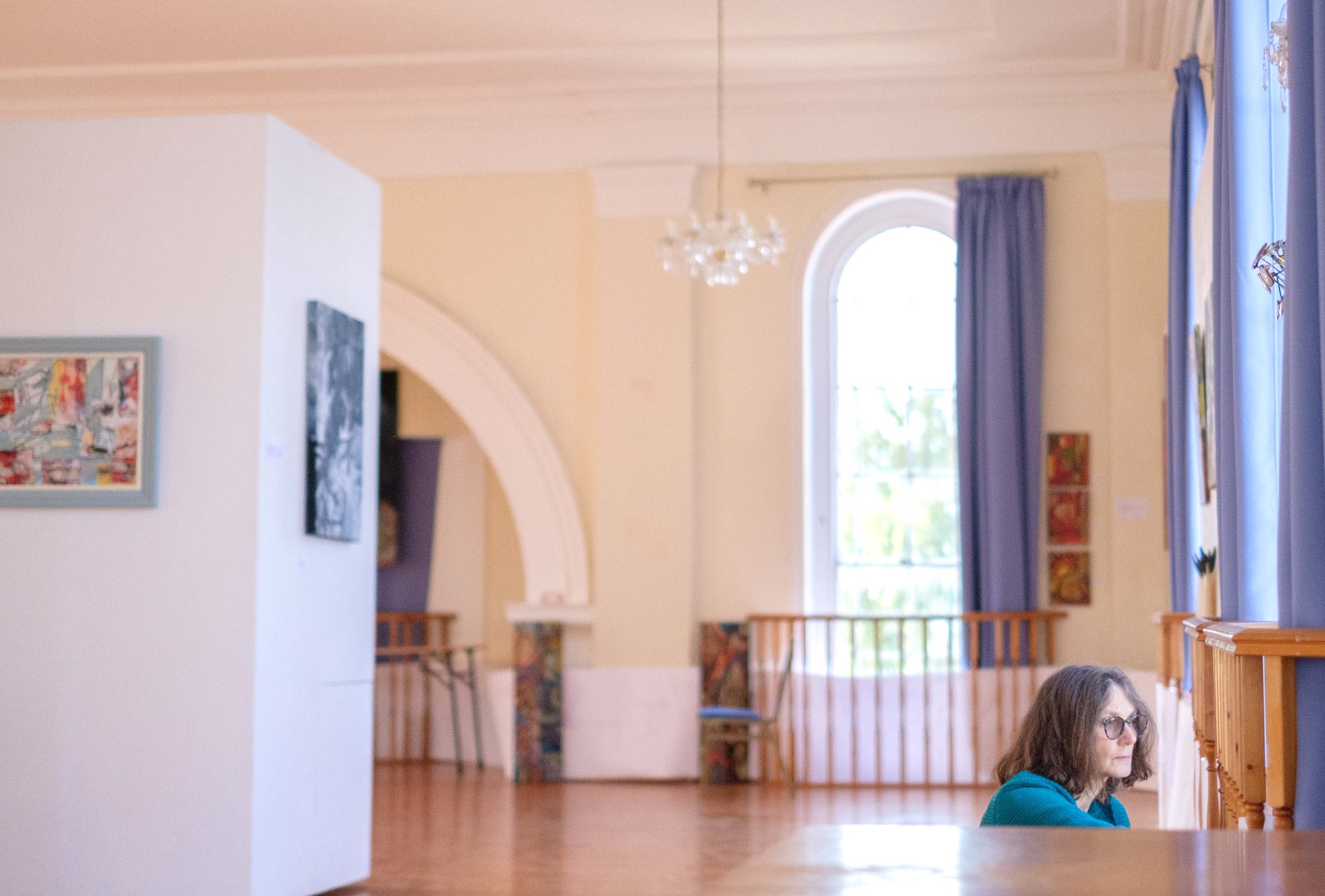
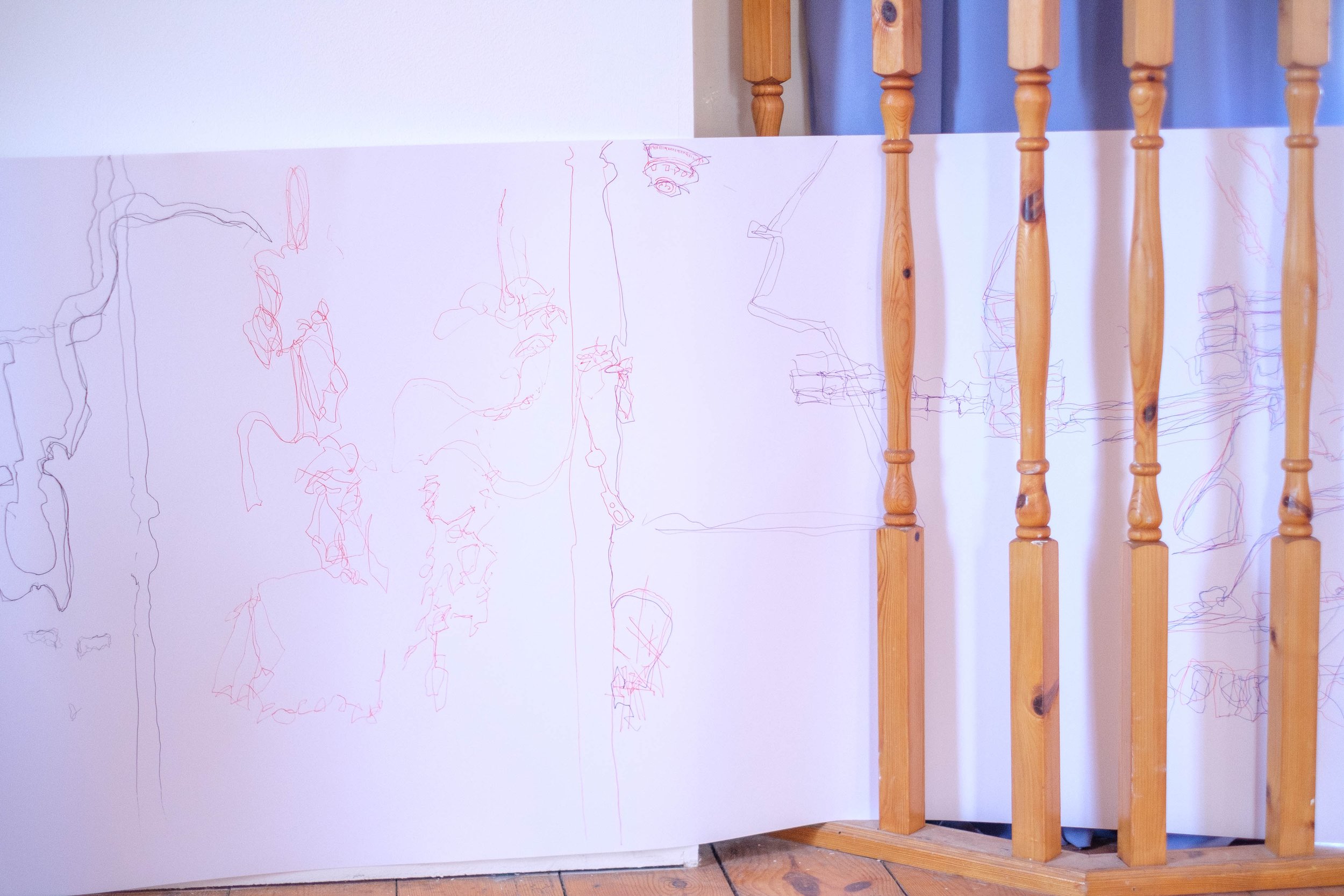
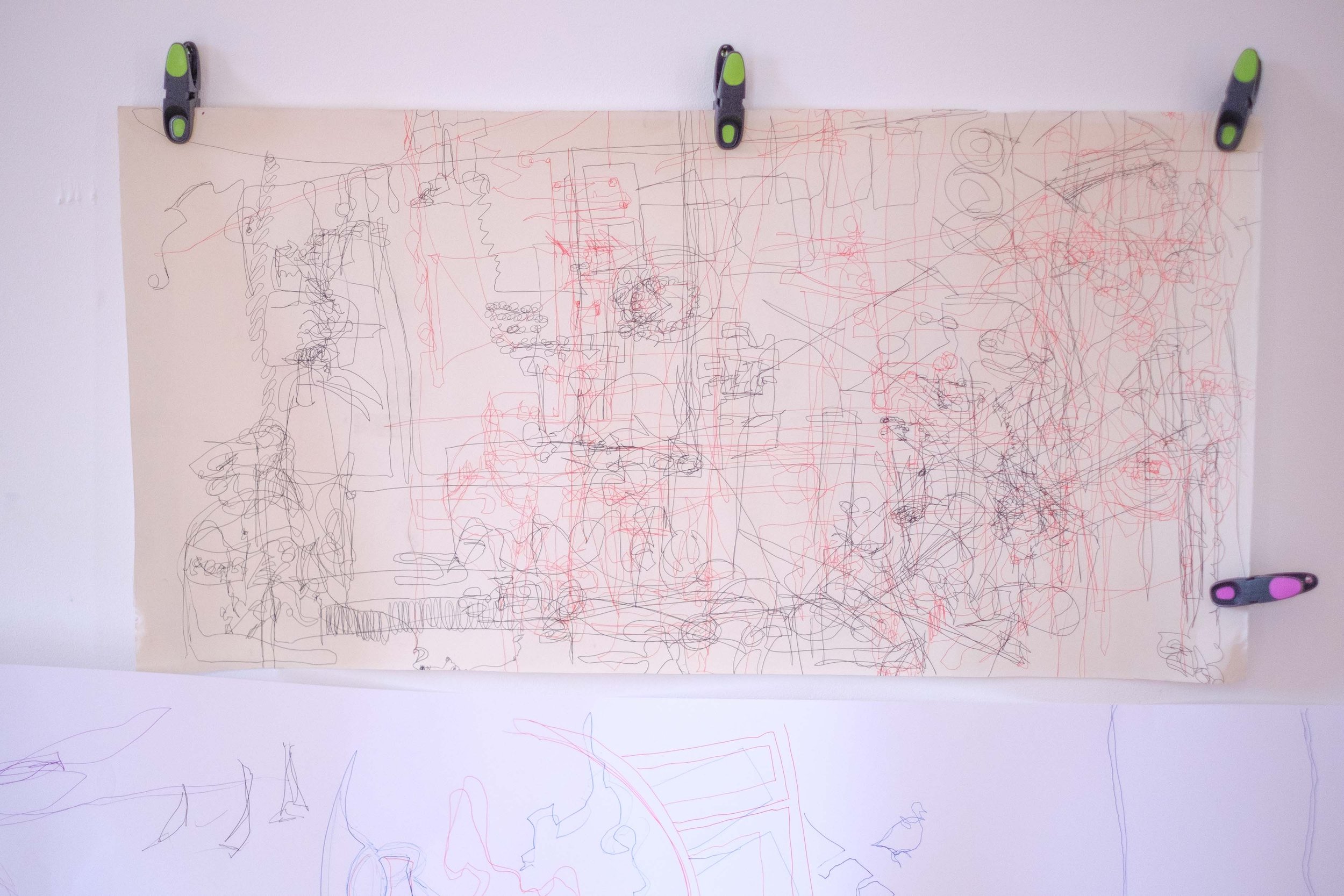
Vincent Dupont-Blackshaw: How would you define your work?
Rosemary Lawrey: I respond in line and shape to the environment I find myself in at any one time - on the bus or ferry, under an umbrella in a rain shower, staring into the sea, being buzzed by a dragonfly, watching the muscular twitches of a horse being irritated by a fly, or the swinging excavator buckets that dug up the Esplanade last year – whatever my eye happens to roll on, so long as it’s moving. I take these impressions of the minutiae of life back to my studio and work with them and from them, sometimes adding lines speedily with my sewing machine, sometimes darting about before an easel. When painting, I use lots of oil paint, lots of colour to mark out the shapes I have collected on my real travels, and the further journeys they take me on in my imagination. The work isn’t produced in a state of calm, but with dynamic movement and energy. Yet the finished pieces have been described as meditative and in a strange way encourage stillness. I think that’s because, ideally, they draw the viewer into an escape of their own. From a viewer’s perspective, I think it is slow-boil art. A quick glance at my work won’t tell much of a story. But people who take the trouble to sit before it usually surprise me by understanding a great deal of what was going on in my head as I painted the picture. My work consists of abstract wanderings based on the shapes that surround me as I go out and about. I sometimes write words about the art and post them in an irregular blog on rosemarylawrey.co.uk, and I offer a professional writing service to artists who want help describing their own work.
V.D.B.: What is your story with the IOW? What brought you here?
R.L.: I was born and brought up by the sea in a port town in South Devon. When I moved away, I missed the sea and always looked for it when I climbed a hilltop, imagining I saw it even when it wasn’t there. The sea was tugging me back my whole life and when I had the opportunity to move back to the coast five years ago, I did so, to the closest comfortable point. City life isn’t for me, and, making a beeline for the coast from Berkshire where I was living, I leapfrogged Portsmouth and found myself in Ryde.
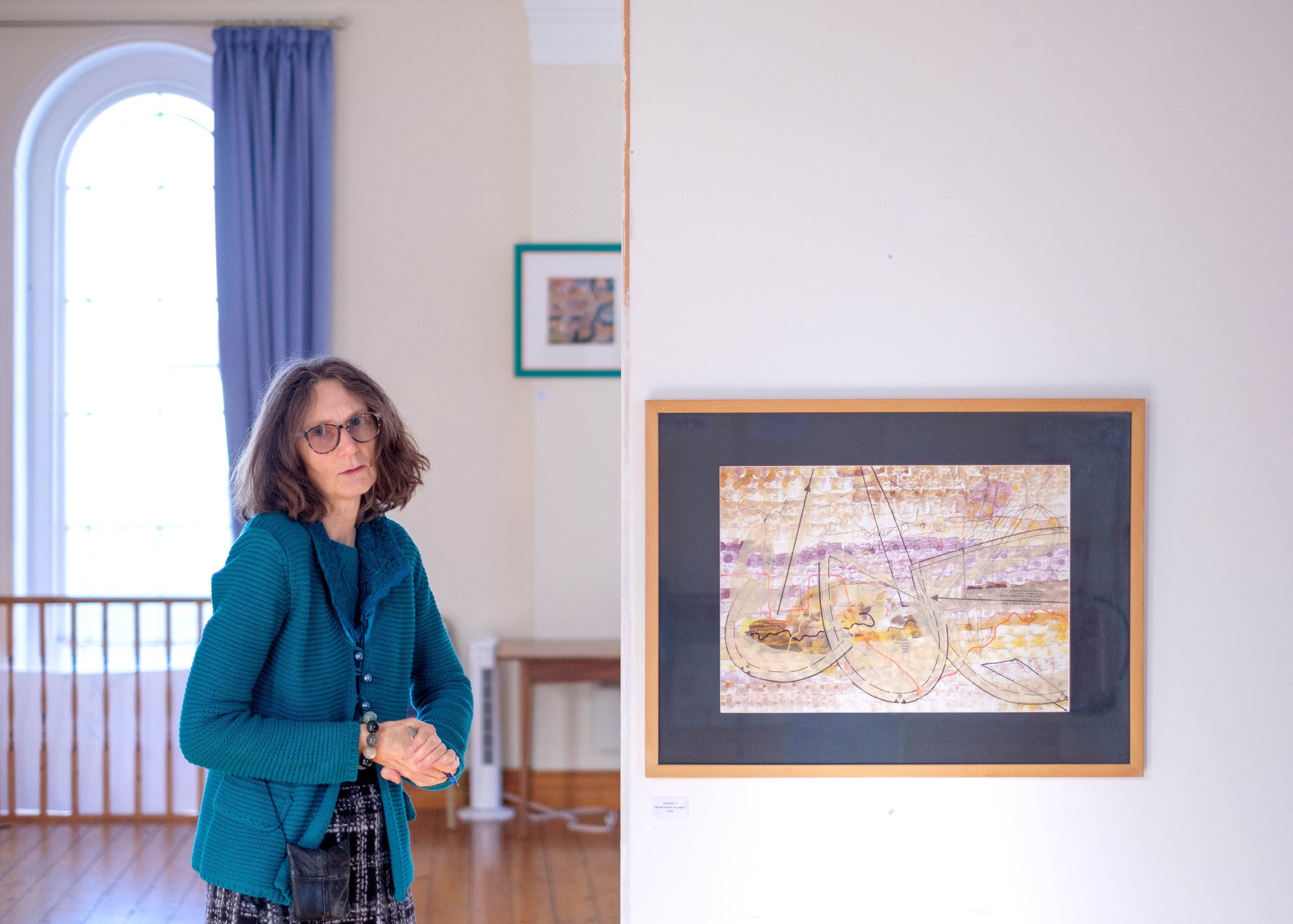
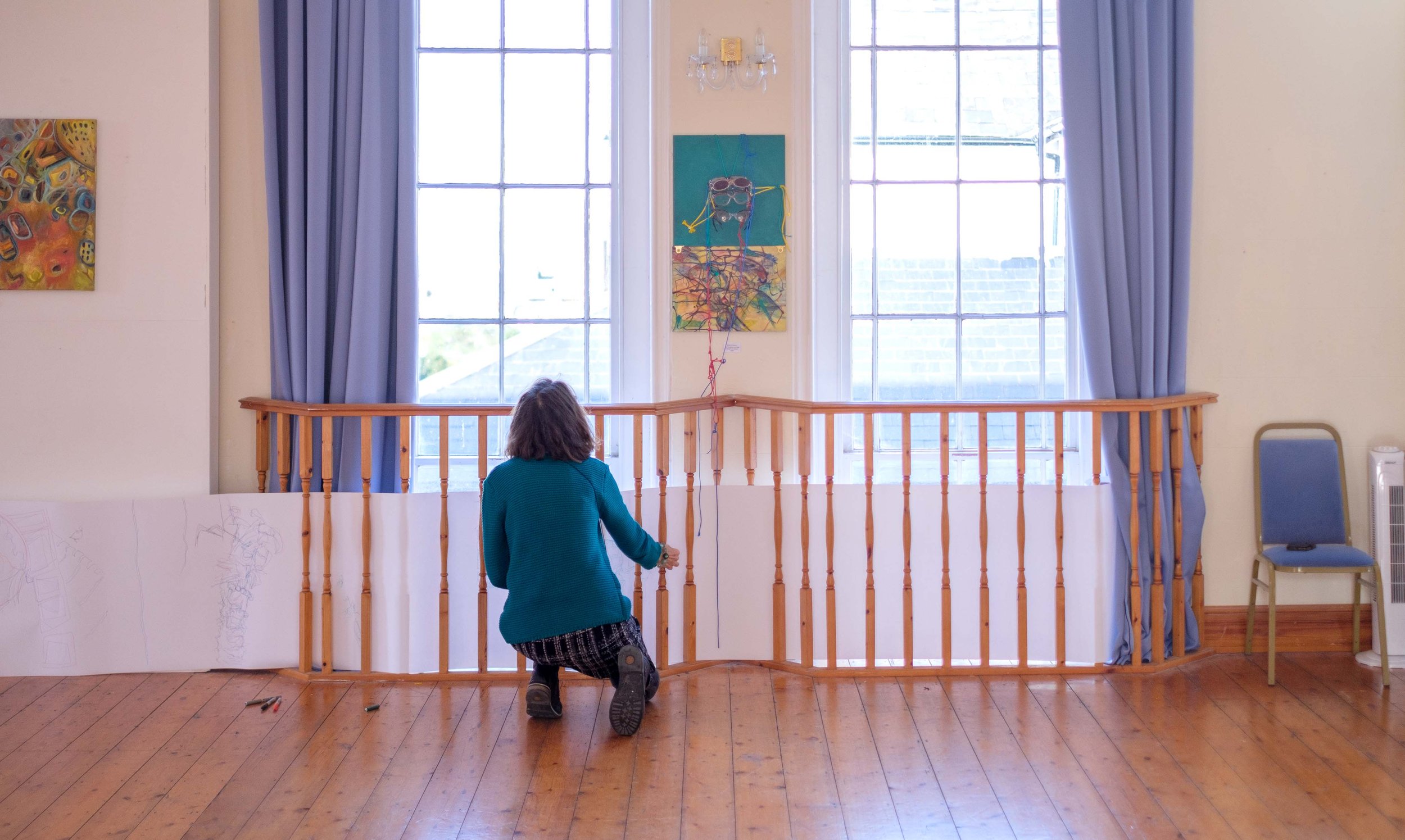
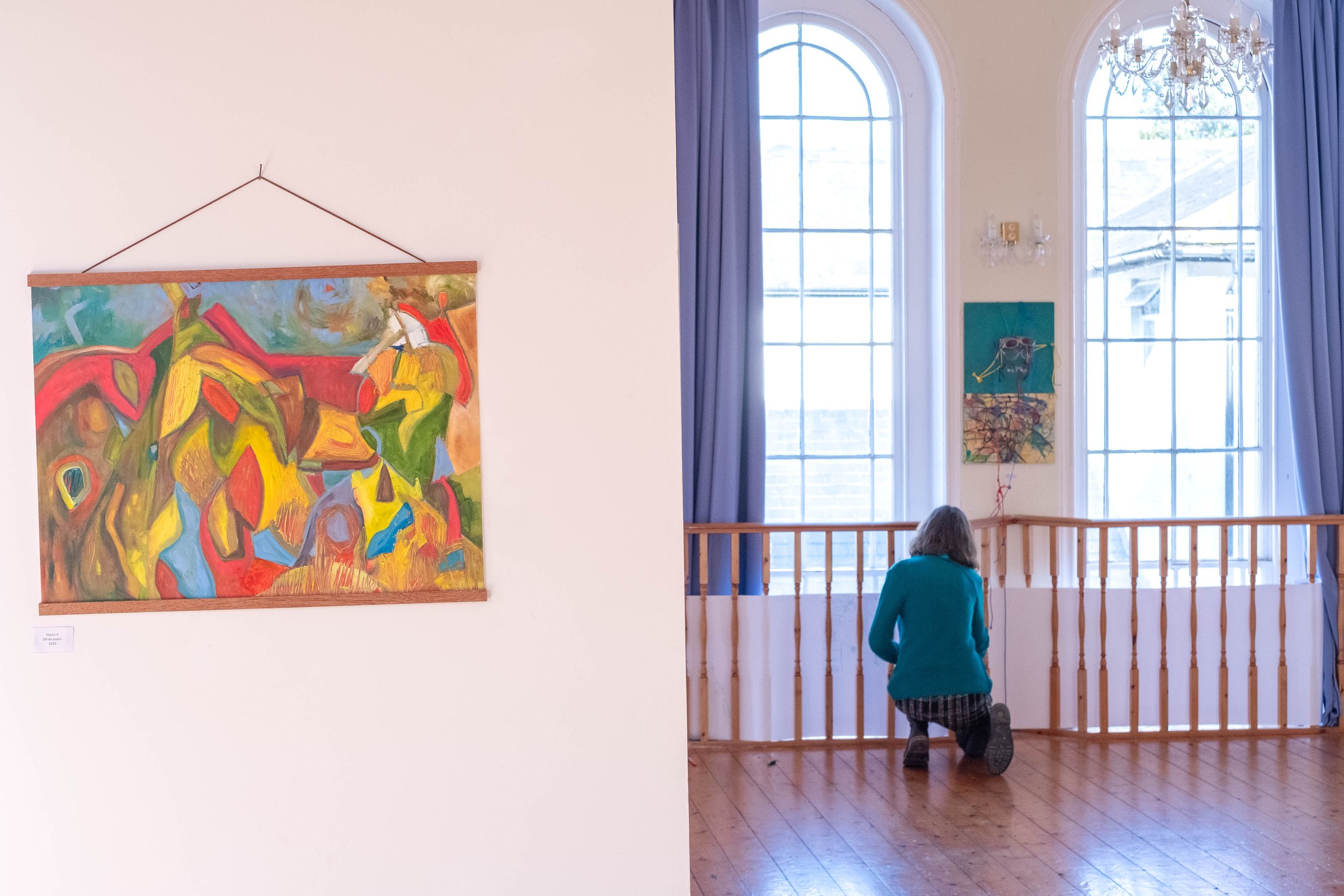
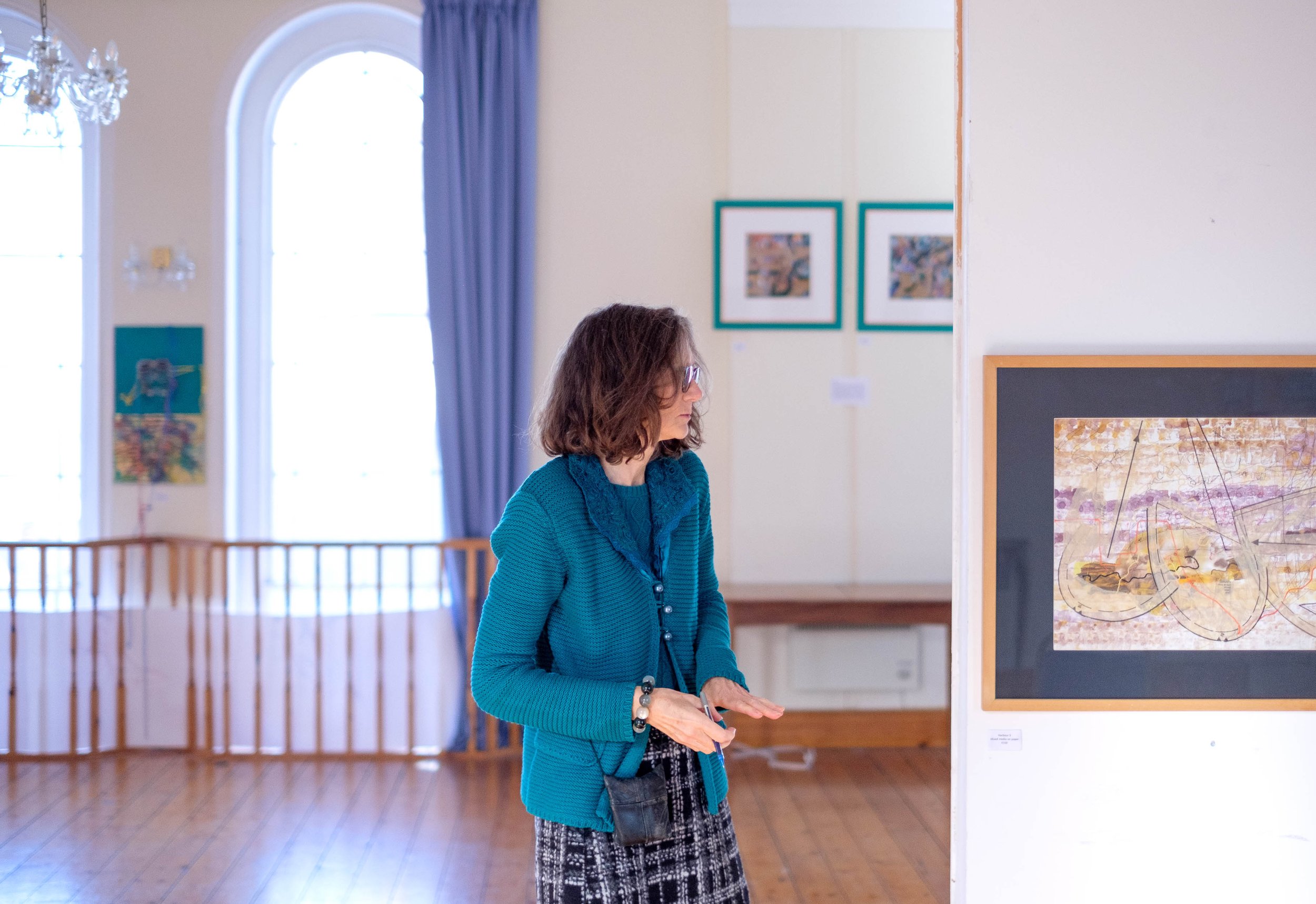
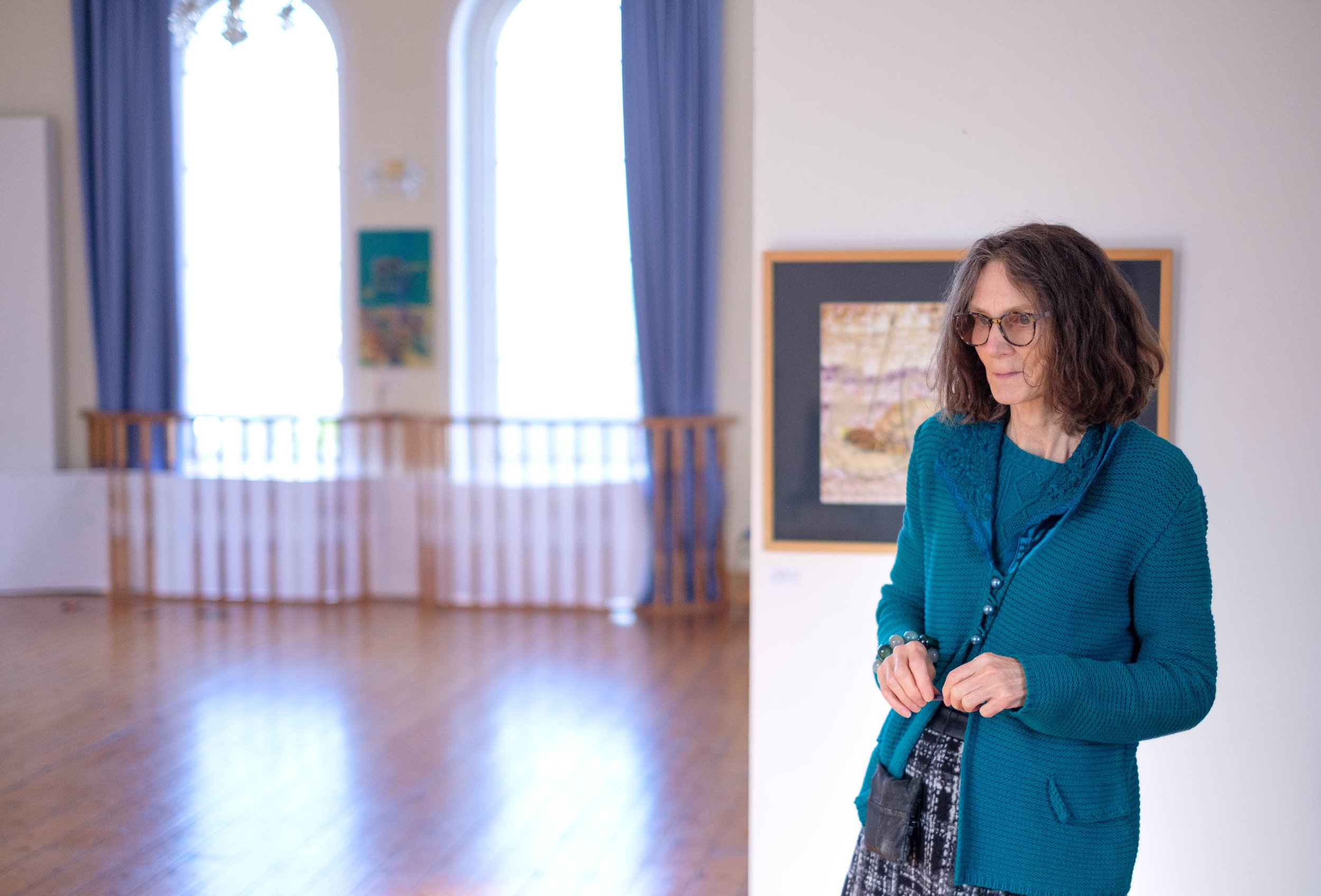
V.D.B.: How does living on the island influence your work?
R.L.: I love movement, and the sea is always moving, always changing. In Ryde, we can see out the corner of our eye when we visit the local shops the constant comings and goings of ocean liners, oil tankers, cross-channel ferries, yachts, cargo ships from every country just at the bottom of the main street. Here the rest of the world is within reach and the possibilities are as endless as the horizons. This is a very exciting place for an artist, even just walking out from my own front door. Within walking distance are not only the shore, but bird hides, dragonfly ponds, architecture evocative of exploration and discovery, the transport museum with its old buses and the Esplanade with its Island Breezers and Coasters and the Fast Cat and Hovercraft. Transport, change and movement, the crying and wheeling of the gulls overhead tell me I’m home. I like to draw when I’m moving or when my subject is moving with perspectives ever changing. Movement is very important to my work. Recently a series of sketches of the shapes in the bodies of horses moving around a field in Binstead Woods as they grazed gave rise to a series of colourful paintings that took on a new life of their own. Just staring at the waves can evoke so many stories and fantasies in our imaginations.
V.D.B.: What is your favorite thing about the Isle of Wight?
R.L.: It’s very easy to feel part of the community. I came here to live five years ago. In the first year I already knew many people, even people from the other side of the Island. When I walk out of my door, I will always see someone I know, and they always have time for a quick word or a long conversation.
V.D.B.: What do people get wrong about the Isle of Wight?
R.L.: That it’s cut off. In fact, it’s an easy and pleasant journey to get to Southampton and Portsmouth or Lymington in the New Forest as a foot passenger, and from there, pretty much anywhere in the world. I feel very much in touch with the world here.
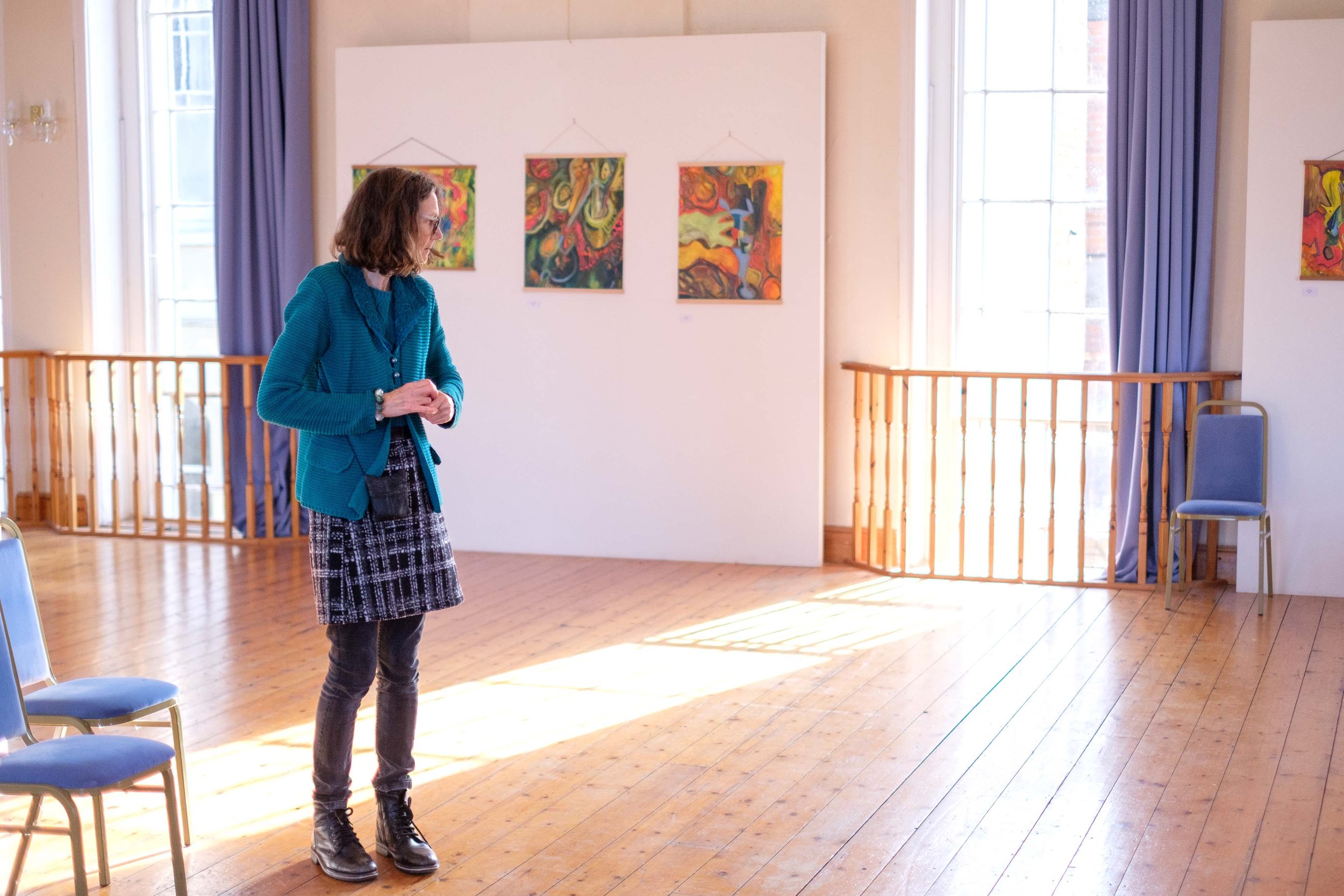
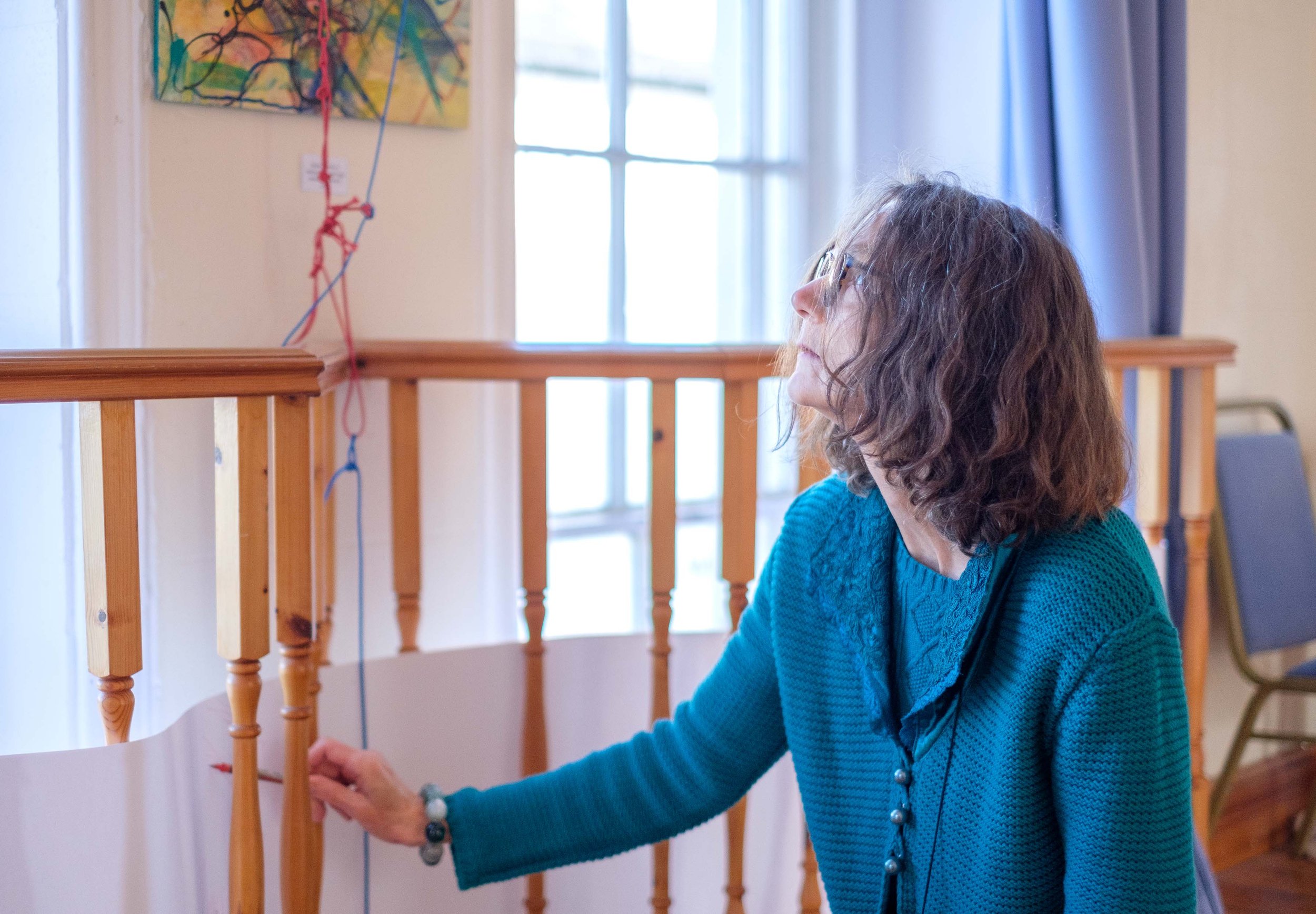
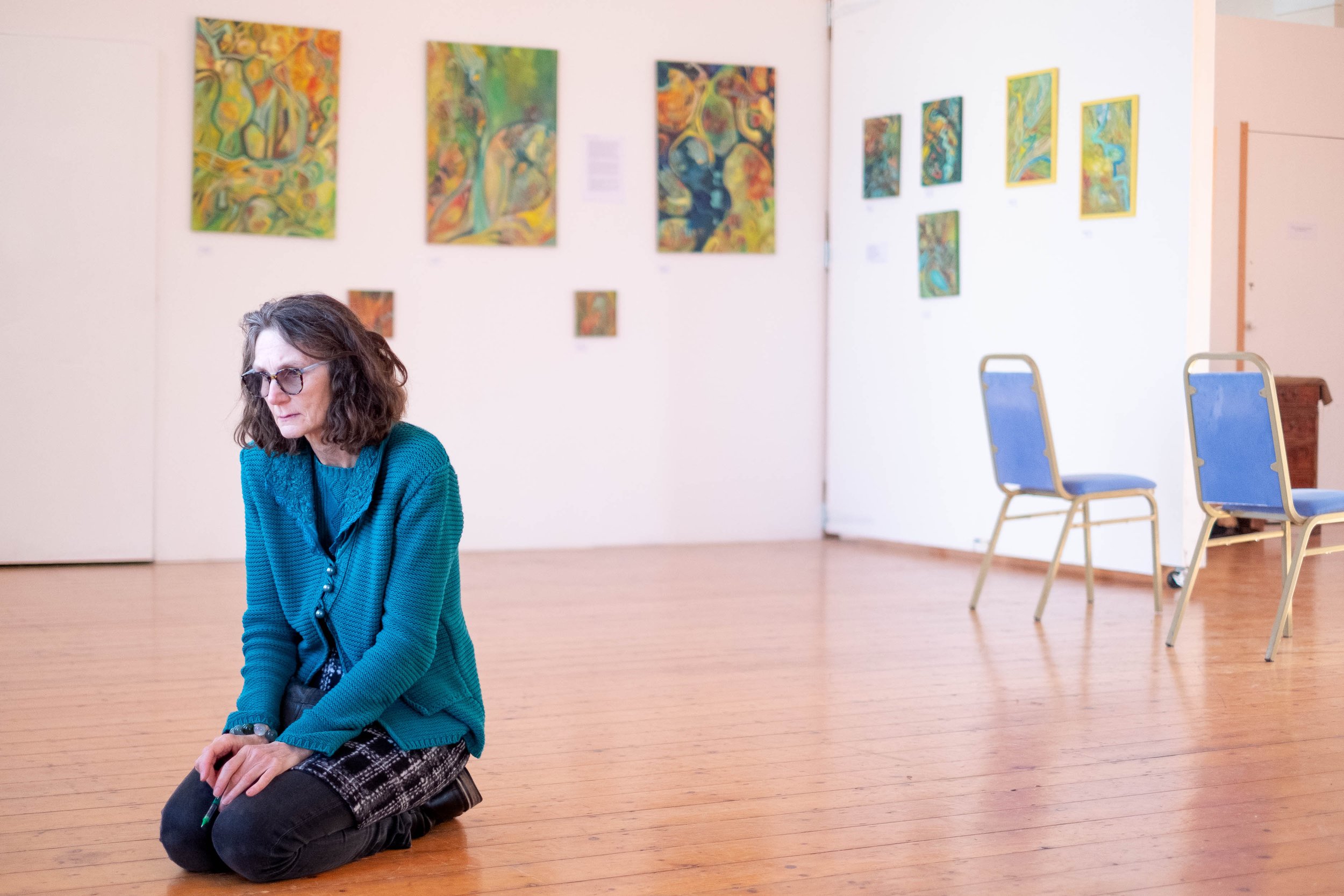
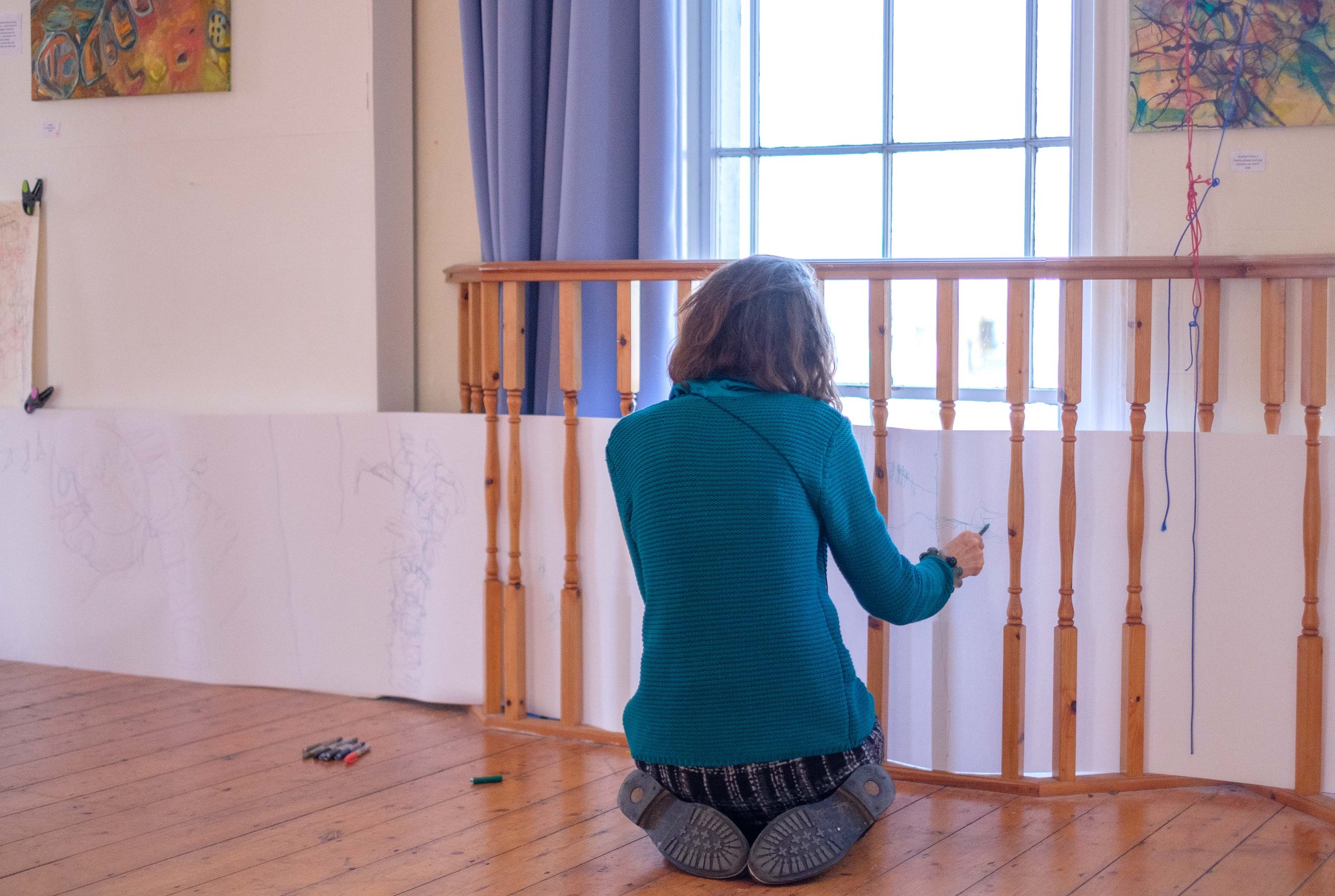
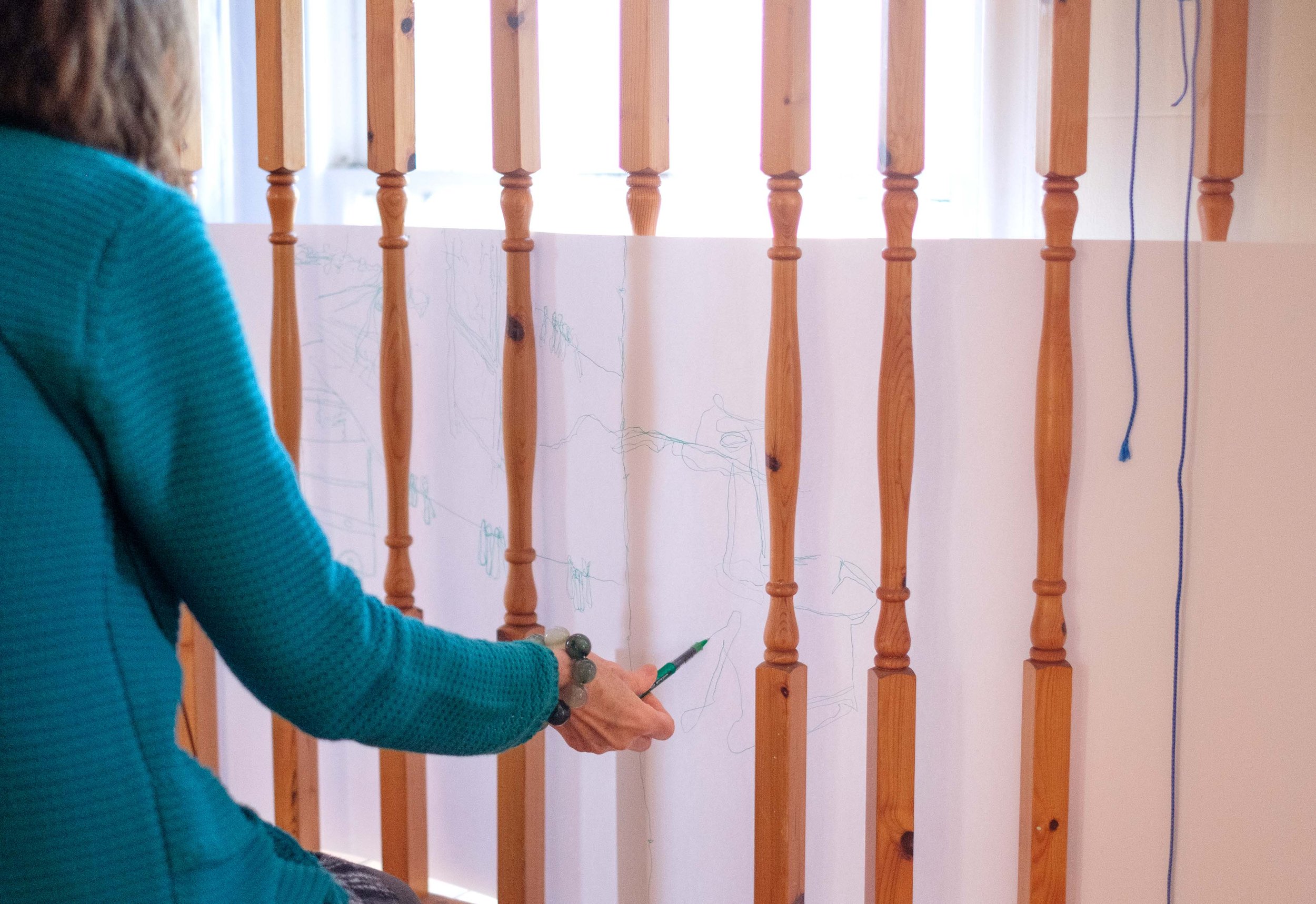
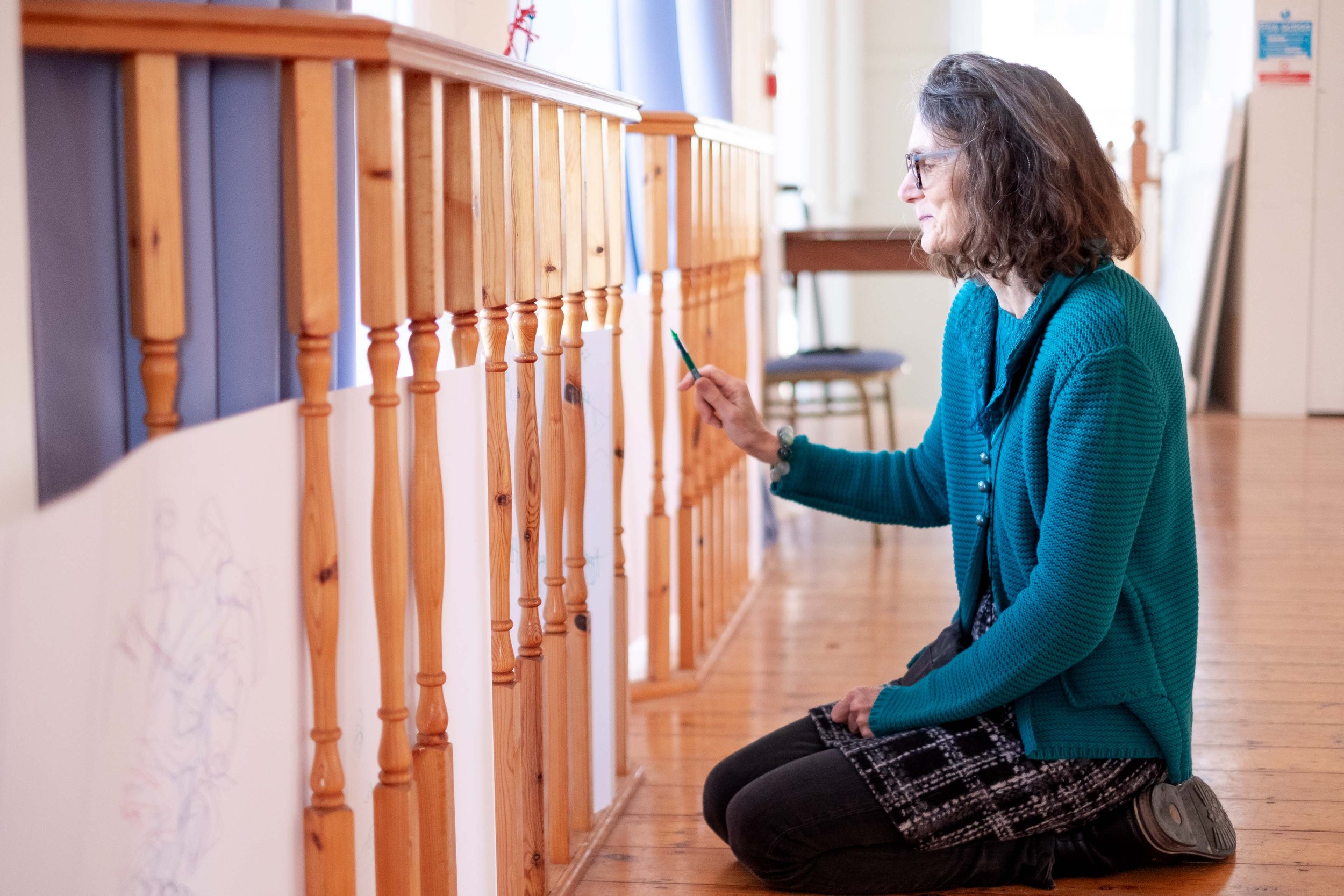
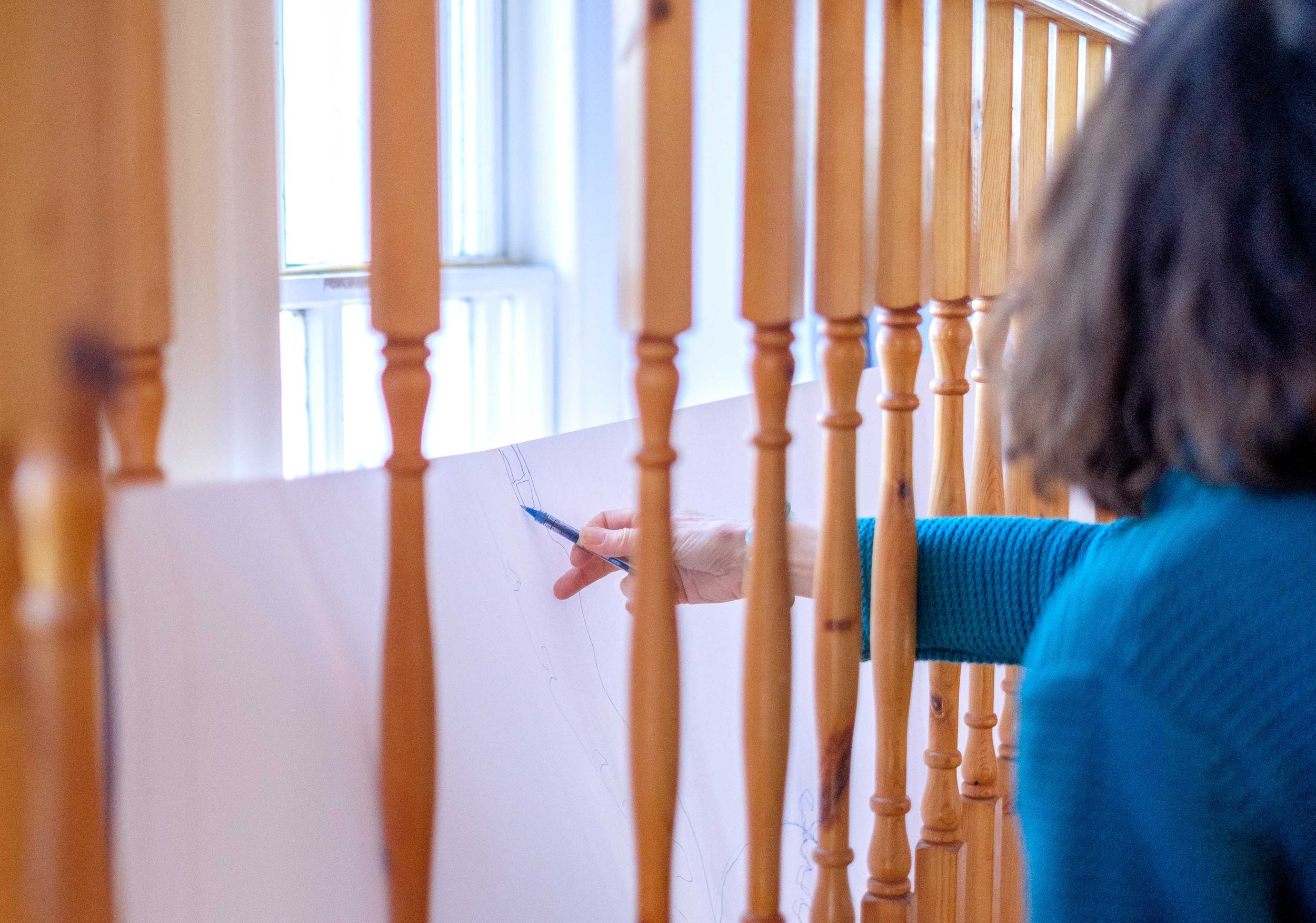
V.D.B.: What is the Island's most underrated attraction/place?
R.L.: There aren’t many cinemas left in the UK like the Commodore in Ryde. It’s a quaint and quirky, friendly cinema that is full of shabby-chic surprises. Having been going there occasionally I only recently discovered its third screen tucked away upstairs in the attic. Built in 1936, it’s from a bygone age and dropping by to see the latest movie is easy and inexpensive and always an experience. Underrated probably because you can often be one in an audience of ten or 15 people but it’s great fun having a cinema almost to yourself!
V.D.B.: If someone who had never visited the island before came for the first time, where would you take them?
R.L.: I always tell people that the only way to arrive in style for the first time is on the Fast Cat from Portsmouth. The walk along Ryde pier is amazing in any weather or at any time of day, and you can see the whole town set out before you. From there, I would walk them right along Player Beach where there are always interesting bits of ceramics or sea creatures to find, curlews or Brent geese and oystercatchers to hear, and the coastal path and “Ladies’ Walk” to Quarr Abbey and beyond to the car ferry terminal (more boats and comings and goings to watch). We would stop for lunch and then walk through red squirrel country, Binstead Woods, all the way back to Ryde and on to Seaview. We would call in at the Hersey nature reserve bird hide and watch the little egrets and the gulls fighting over eels and we might see a fox or a kingfisher, and then we’d probably want to get the bus back to Ryde if we hadn’t got the energy left to walk back.
V.D.B.:What is your favourite shop on the island?
R.L.: Drift in Yarmouth, because they have such unusual things and the couple that own it go all over the world themselves to hand-select their stock – another example of how open the Island is to the rest of the world.
V.D.B.: For you, “life on the Isle of Wight is …”
R.L.: For me, life on the Isle of Wight is often a little surreal and always entertaining.
V.D.B.:Finally, because it’s always nice to share something we love, do you have a book, a film, a series, a music album, a work of art to recommend?
R.L.: Yes. Sticking with the surrealism, I would like to share the paintings of Catalan artist Antoni Pitxot who was a friend of Salvador Dali. He made magnificent paintings of people, nudes made entirely of rock lying or standing on beaches made of the same rocks so that they blended in perfectly with their seaside surroundings. I love his pictures and the big sea-defence boulders that surround Ryde harbour make me think of his people.
